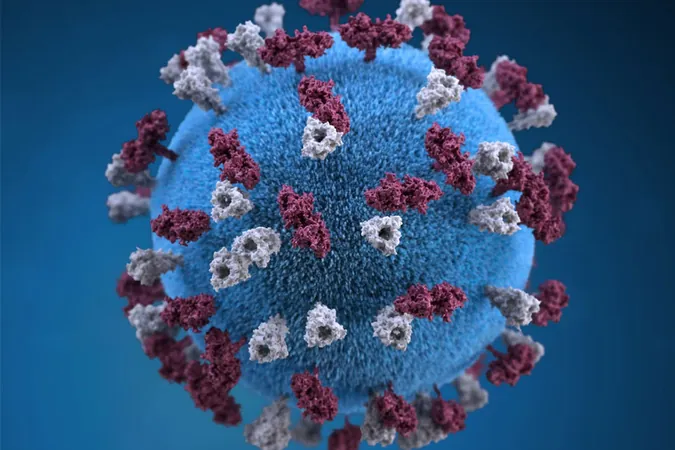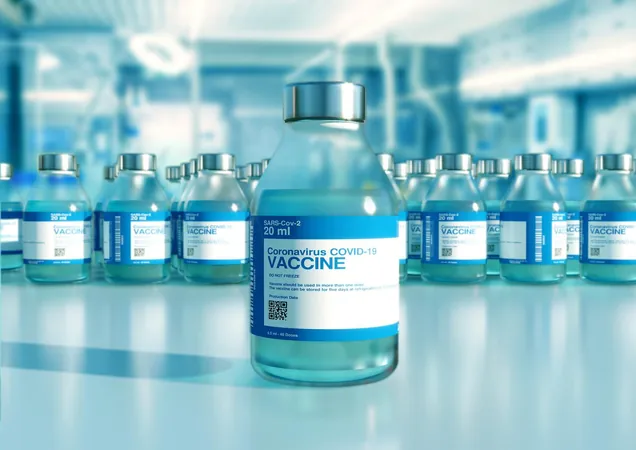
Debunking the Myths: The Truth About MMR Vaccines and Autism
2025-09-10
Author: Olivia
Vaccines: Our Best Line of Defense
Vaccines are our strongest allies in safeguarding health, with the measles, mumps, and rubella (MMR) vaccine leading the charge. Since its introduction, it has thwarted countless outbreaks, contributing to an estimated 94 million lives saved since 1974.
The Autism Controversy
However, the MMR vaccine has faced scrutiny, particularly concerning an alleged connection to autism. This has prompted numerous research efforts to investigate these claims.
The Science is Clear: No Link
After extensive research, the consensus is unequivocal: the MMR vaccine is safe and does not cause autism.
A Brief History of the MMR Vaccine
Licensed for use in the US in 1971, the MMR vaccine replaced individual vaccinations for each disease, showing effectiveness and a good safety profile. Yet, a controversial study published in 1998 by British gastroenterologist Andrew Wakefield sparked fears when it suggested a link between the MMR vaccine and developmental disorders in a small group of children. Despite its flawed methodology, including the absence of a control group, this study gained widespread media traction.
Consequences of Misinformation
Unfortunately, this publicity led to a significant drop in vaccination rates and a surge in measles cases, particularly in the UK, where vaccine uptake plummeted from 92% to below 80%.
Rigorous Research Unveils the Truth
In light of these concerns, other researchers launched their own investigations. One significant study, commissioned by the UK’s Medicines Control Agency in 1999, analyzed data from 498 autistic children. It found that while autism cases were on the rise, there was no spike correlated with the introduction of the MMR vaccine.
Further Studies Support the Findings
A landmark study from Denmark analyzing data of over 537,000 children reinforced these findings, demonstrating no increased risk of autism among vaccinated children. Subsequent studies continued to affirm the safety of the MMR vaccine across various cohorts, including children at higher risk.
Combating Contradictory Claims
While some smaller studies have suggested a link, comprehensive reviews, such as those from Cochrane, have consistently shown no association between MMR and autism.
The Role of Vaccine Ingredients
Concerns about vaccine ingredients like thimerosal have also been closely examined. Meta-analyses involving over 1.25 million children have concluded that there is no connection between vaccination and autism.
A Clear Conclusion Based on Evidence
The overwhelming body of evidence consistently demonstrates that the MMR vaccine does not cause autism. While minor side effects can occur, they pale in comparison to the serious risks posed by measles, mumps, and rubella.
Protecting Future Generations
These diseases historically resulted in thousands of deaths and disabilities. The resurgence of measles in areas with declining vaccination coverage serves as a stark reminder of why the MMR vaccine remains vital in protecting public health.









 Brasil (PT)
Brasil (PT)
 Canada (EN)
Canada (EN)
 Chile (ES)
Chile (ES)
 Česko (CS)
Česko (CS)
 대한민국 (KO)
대한민국 (KO)
 España (ES)
España (ES)
 France (FR)
France (FR)
 Hong Kong (EN)
Hong Kong (EN)
 Italia (IT)
Italia (IT)
 日本 (JA)
日本 (JA)
 Magyarország (HU)
Magyarország (HU)
 Norge (NO)
Norge (NO)
 Polska (PL)
Polska (PL)
 Schweiz (DE)
Schweiz (DE)
 Singapore (EN)
Singapore (EN)
 Sverige (SV)
Sverige (SV)
 Suomi (FI)
Suomi (FI)
 Türkiye (TR)
Türkiye (TR)
 الإمارات العربية المتحدة (AR)
الإمارات العربية المتحدة (AR)